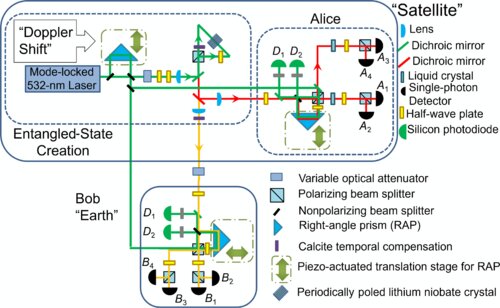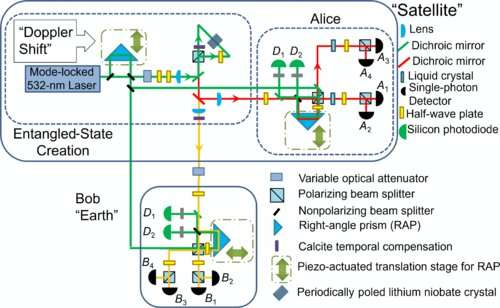
Satellites may enable better quantum networks (Image Credit: Phys.org)

A study by Oak Ridge National Laboratory researchers has demonstrated how satellites could enable more efficient, secure quantum networks.
“We used experiment, emulation and simulation to see what’s needed for high-dimensional quantum cryptography in space and found it’s quite doable,” said ORNL’s Joseph Chapman.
Quantum key distribution can use quantum bits, or qubits, to distribute shared random keys for users to exchange encrypted information. Qubits can exist in more than one state simultaneously and carry more information than standard computing bits. Qudits, another quantum unit, can exist in more than two states and carry even more information.
Chapman’s team used light particles to create entangled pairs of qubits and qudits, meaning one particle from a pair couldn’t be described independently of the other. The team emulated transmission between a ground station and satellite and simulated transmission from orbiting satellites.
“We found qubits and qudits are both viable,” Chapman said.
The study is published in the journal Physical Review Applied.
More information:
Joseph C. Chapman et al, Hyperentangled Time-Bin and Polarization Quantum Key Distribution, Physical Review Applied (2022). DOI: 10.1103/PhysRevApplied.18.044027
Provided by
Oak Ridge National Laboratory
Satellites may enable better quantum networks (2023, February 10)
retrieved 11 February 2023
from https://phys.org/news/2023-02-satellites-enable-quantum-networks.html
part may be reproduced without the written permission. The content is provided for information purposes only.





